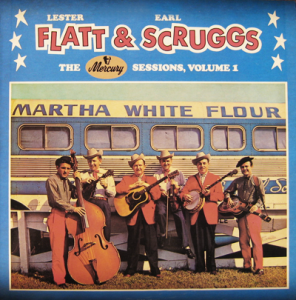Pages
Scotts-Irish + Native Tribes + Nashville Memphis + Whiskey and Moonshine + Cotton + Bluegrass and Country + Blues and Rock + Memphis Soul + Isaac Hayes + Bessie Smith + Dolly Parton + Elvis Presley + David Crockett + Civil War + Sam Davis + Civil Rights + Sam Houston + Politics + Ku Klux Klan
Country Music and Bluegrass
 When the early Scots-Irish settlers moved from Jamestown, Virginia into the Appalachian region they carried possessions and traditions from their native countries. Scottish and English ballads featured widely in their culture and found a home in the hills of Kentucky, known as the Blue Grass State, due to the blue colored grass tips in the springtime, creating the illusion of a field of blue grass.
When the early Scots-Irish settlers moved from Jamestown, Virginia into the Appalachian region they carried possessions and traditions from their native countries. Scottish and English ballads featured widely in their culture and found a home in the hills of Kentucky, known as the Blue Grass State, due to the blue colored grass tips in the springtime, creating the illusion of a field of blue grass.
While bluegrass music was (arguably) born in 1945, the term was not used to describe it until the 1950's. When country singer Bill Monroe named his band the Blue Grass Boys, he had no idea that this would label a new music genre. However, the band's unique sound arrived in the form of 21 year old Earl Scruggs, with his impressive thee--finger banjo picking. The band first appeared on the Grand Ole Opry stage in 1939.
Apart from Bill and Earl, other well respected Bluegrass musicians include Doc Watson, Jimmy Martin, Maybelle Carter and Roy Acuff.
The recording history of country music has its roots in the 1920's when in 1923 Okeh Records released a  record by Fiddlin' John Carson and Ralph Peer of Victor Records went to Bristol, Tennessee to record hillbillies. The term hillbilly was not used for the music genre until "Uncle" Dave Macon recorded Hill Billie Blues in 1924.
record by Fiddlin' John Carson and Ralph Peer of Victor Records went to Bristol, Tennessee to record hillbillies. The term hillbilly was not used for the music genre until "Uncle" Dave Macon recorded Hill Billie Blues in 1924.
At this time, cowboy songs were being played on air and in 1925 the Nashville radio station WSM started broadcasting a barn dance, which eventually became Grand Ole Opry. The radio show needed a dance hall and several venues around Nashville were tested, including the Belcourt Theatre (known then as the Hillsboro Theatre), the Dixie Tabernacle, and the War Memorial Auditorium before it settled at the Ryman Auditorium. In 1974 the show moved to the current, purposely build theatre.
Over the decades, as America fell in love with country music, other influences would infiltrate with blues and folk being perfect companions.
Many American country singers have acquired worldwide fame such as Hank Williams, Chet Atkins, Jim Reeves, Roger Miller, Charlie Pride, John Denver, Patsy Cline, Willie Nelson, Dolly Parton, Kenny Rogers, Glen Campbell, Garth Brooks, Carrie Underwood, the Dixie Chicks and Taylor Swift.
Sub-genres of country music would include honky tonk, neo country, country rock, heartland rock and southern rock
